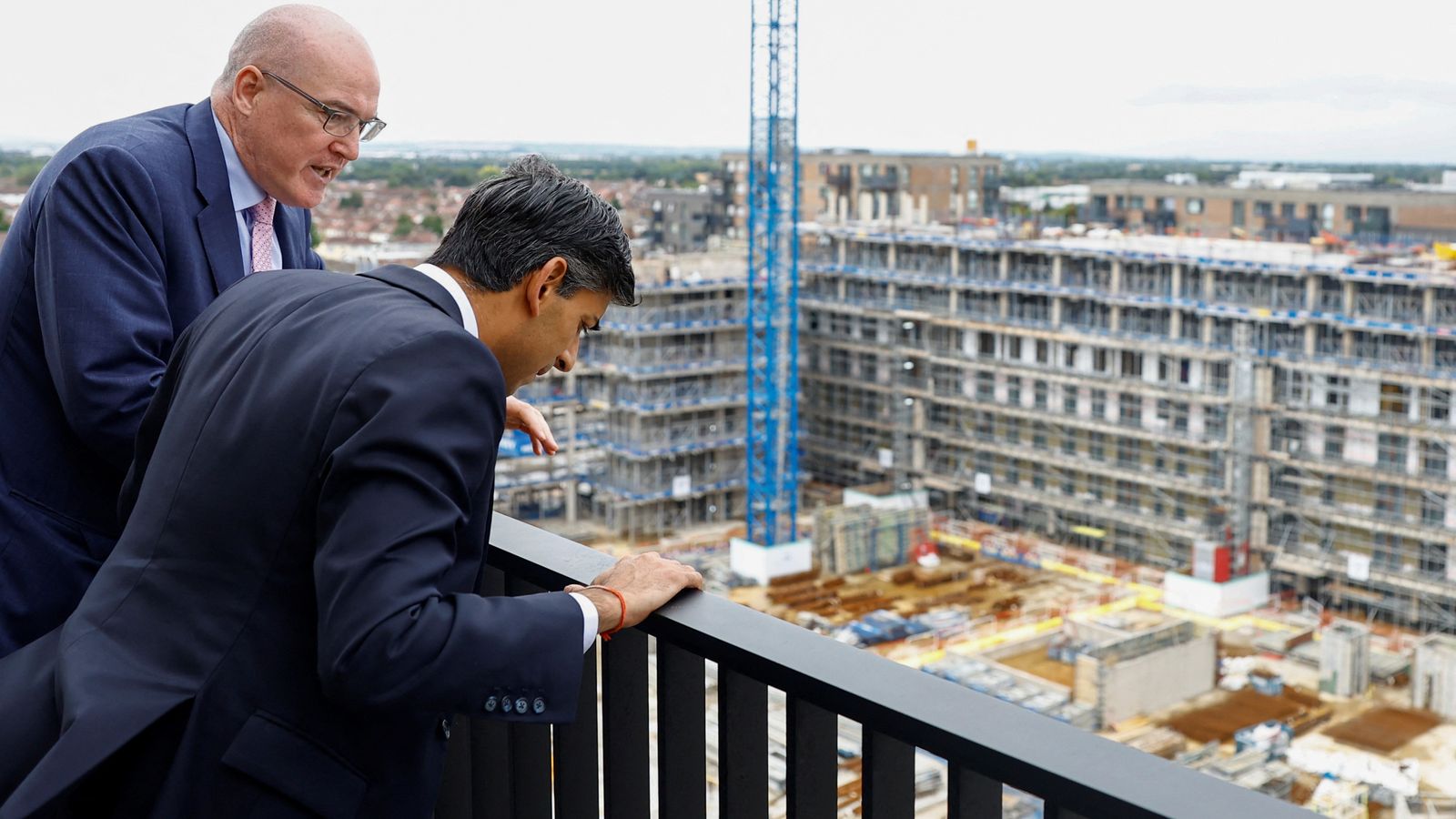As is the way with these things, the stock exchange announcement of the £2.52bn takeover of Redrow by Barratt Developments was brimming with optimism, trumpeting the “uniquely compelling opportunity” to “create an exceptional UK homebuilder in terms of quality, service and sustainability that builds high-quality, sustainable homes and communities” and address “the country’s need for homes”.
Yet one didn’t have to look very far to find what cynics will say is the true rationale behind the UK’s second-largest housebuilder by stock market value acquiring the seventh-largest player.
Money latest: How much you need to retire ‘comfortably’
Barratt also reported adjusted pre-tax profits of £157.1m for the six months to the end of December, down nearly 70% on a year earlier, while Redrow reported a near 58% drop in half year pre-tax profits, to £84m, for the same period.
Such figures – by no means out of kilter with the sector apart, perhaps, from the stunning turnaround being executed by Greg Fitzgerald at Vistry Group – speak to the immense pressures that have beset the UK’s housebuilding sector over the last 18 months or so.
Housebuilders have variously been grappling with cost inflation – particularly in skilled labour – shortages of building materials, falling house prices on the back of higher interest rates and the removal of subsidies to homebuyers under the Help To Buy scheme.
The Gove problem
Frazer to meet Premier League clubs amid New Deal impasse
Sainsbury’s can’t rule out job losses amid new focus for stores
Money latest: How much you need to retire ‘comfortably’
On top of all that, infuriating the industry, has been what many see as a one-man war conducted against it by Michael Gove, the housing secretary.
He is seen firstly as having press-ganged housebuilders into stumping up the billions of pounds needed to make buildings safe in the wake of the Grenfell Tower fire, while allowing overseas developers and cladding manufacturers to avoid paying their fair share.
Secondly, they say, Mr Gove has blocked housing developments unnecessarily.
And, thirdly, he has lifted pressure from local authorities to approve new developments after Rishi Sunak backed down in the face of pressure from Conservative backbenchers and abandoned top-down housebuilding targets.
The UK’s planning regime is now, housebuilders say, more sclerotic than ever.
This sense of grievance was summed up by Steve Morgan, the founder and still 16% shareholder of Redrow, in an interview with the industry publication Building in April last year.
He said: “Having to deal with the crap that’s coming out [of the Department for Levelling Up, Housing & Communities], with planning and water neutrality – there’s no help from the government.
“It’s almost like the government wants to destroy the industry.
“The government has turned its back on homeowning. We’re becoming generation rent. Build to rent is the only show in town.”
The business case
These obstacles help explain why Redrow has decided to become part of an enlarged Barratt and why the City is supportive of the deal.
As Aynsley Lammin, analyst at the broker and investment bank Investec, put it in a note to clients this morning: “The deal looks very sensible given the challenging planning and land backdrop, particularly assuming that sales rates and the profit outlook gradually improves from here.”
There is no doubt there will be benefits to the business in the removal of duplicated roles – the pair are assuming some £90m worth of annual cost savings three years into the takeover – and the greater buying power it will enjoy.
The pair also see benefits from taking Redrow’s strong reputation for housebuilding excellence and applying it to Barratt’s bigger national coverage.
That is all good news for shareholders – assuming an increasingly-assertive Competition and Markets Authority does not intervene.
More homes?
But what about the pledge, from the Barratt chief executive David Thomas, that the combination will “bring together two highly complementary companies, creating an exceptional homebuilder in terms of quality, service and sustainability, able to build more of the high-quality homes this country needs”?
The two companies are confident they can deliver this.
They argued today the enlarged business will be better placed to supply the greater range of different properties on a development that is increasingly being demanded by planning authorities – with sites being split so Barratt can complete the smaller properties it has traditionally built for first-time buyers and young families, David Wilson can complete the larger family homes it builds for customers moving up the housing ladder and Redrow the larger sized and luxury properties in which it specialises.
The question though is whether Redrow homes can be incorporated on Barratt sites – and vice versa – in good time. The companies believe it is possible.
Be the first to get Breaking News
Install the Sky News app for free
Barratt can also point to having done this already: today’s presentation to analysts included a slide of how it had dual-branded its Grey Towers Village development at Nunthorpe, near Middlesbrough, to incorporate Barratt Homes.
It had originally been badged under the company’s more up-market David Wilson banner but, after the pandemic, it was dual-branded to include the Barratt Homes brand and a Barratt show home.
As a result, completions rose to 110% of the pre-pandemic level while reservation rates increased by almost 100%, while the introduction of the Barratt brand had led to no drop-off in brand quality.
Barratt also highlighted its successful stewardship of David Wilson which, since it was acquired just before the global financial crisis, has gone from being a regional brand to being a truly national one.
So there are some grounds for optimism.
However, with the UK’s planning regulations now stacked firmly in favour of those who would block developments and against the developers, the enlarged Barratt Redrow might still have an uphill battle on its hands.
What might come to their aid, though, would be the election of a Labour government committed to reinstating top-down housebuilding targets. Which would be ironic indeed given Mr Morgan’s past donations to the Conservatives.










